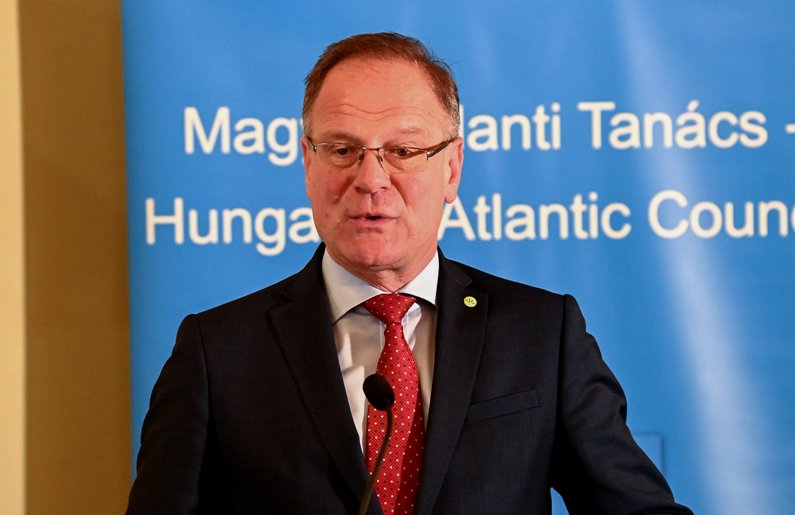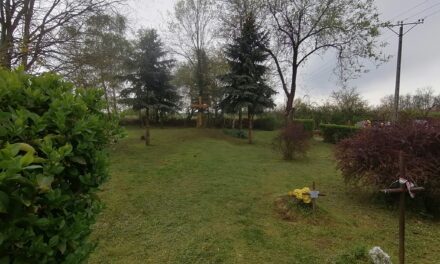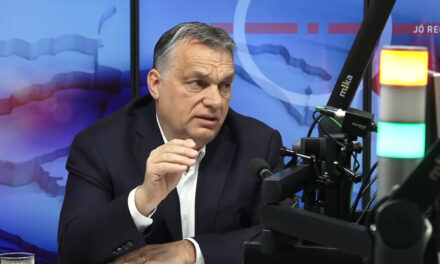A generational change is taking place, Europe is an online space for today's young people, political messages are expressed in memes, simplified, polarizing messages collide with each other, this is leading Europe towards polarization and radicalization - Minister of Regional Development Tibor Navracsics stated before the general meeting of the Hungarian Atlantic Council under the title The Europe of the Future in his presentation at the Hungarian Academy of Sciences.
Tibor Navracsics said: the advance of more radical parties can be seen all over Europe, the parties that used to be in the middle are either radicalizing or weakening. The liberal parties are already formulating more and more radical messages, "and Christian democracy has become synonymous with the opposition, and the social democrats are not much better off either." He pointed out: this is why the debates are becoming more and more intense.
Today, in Europe and throughout the world, we have reached a limit, the conditions that have made our world comfortable in the past will change, the minister said. A century has now passed since the democratic transitions in Central Europe, we are witnessing a generational change, and this brings a fundamental qualitative change. According to Tibor Navracsics, today's young family mothers and fathers have "grown into" the democratic and unified Europe and the online revolution, they already see the world and the problems differently.
The second important point is that
He mentioned the Russian-Ukrainian war as the third factor, highlighting: since 1945, there has not been a war on the continent that was fought by one of the participants in the Second World War. The Russo-Ukrainian war raises fundamental questions about Europe's security and signals that "the myth of Europe's invulnerability has been destroyed once and for all." It turned out that humanity cannot learn from history, because if anyone could have learned from history, it was the successor state of the Soviet Union.
He called it essential that "the war ceases with an armistice so that negotiations for a fair and just peace can begin," because if the war escalates, the Europe of the future will be at risk.
At the same time, according to the minister, the future of Europe also depends on whether it is possible to make Europe a cultural community. “This is a promise that has not yet been fulfilled, and this explains the conflicts within the Union; if we understood each other's culture, a significant part of the political debates could be saved. He added that Western European students grow up not learning Central European history, for them "European civilization ends at Vienna". That's why "we have to make ourselves known". He stated:
In response to a question, he explained that, in his view, the United States thinks about China the same way it thought about the Soviet Union at the time, while it is not at all certain that China is the Soviet Union of today. After all, the minister argued, the Soviet Union was a particularly aggressive military power, while China's strong economic aspirations are visible.
"The biggest mistake the United States can make is to misread the signals," said Tibor Navracsics. He said that it would be disadvantageous for Europe if the center of gravity of the world economy shifted to the Pacific Ocean region.
Also in response to a question, he explained that "enlargement stabilizes, the Union's duty is to expand". However, together with the Western Balkans, the union will no longer be the same as it is today, he added. He stated:
"we must be absolutely pro-enlargement", and it is not a counter-argument that the union will be "multi-speed", as it already is today.After Tibor Navracsics' presentation, the general assembly of the Hungarian Atlantic Council began. The organization was established in 1992 at the initiative of Prime Minister József Antall with the aim of helping Hungary join NATO, and since joining in 1999 it has been working for the integration of transatlantic values and principles.
Source and title image: MTI/Zoltán Máthé












